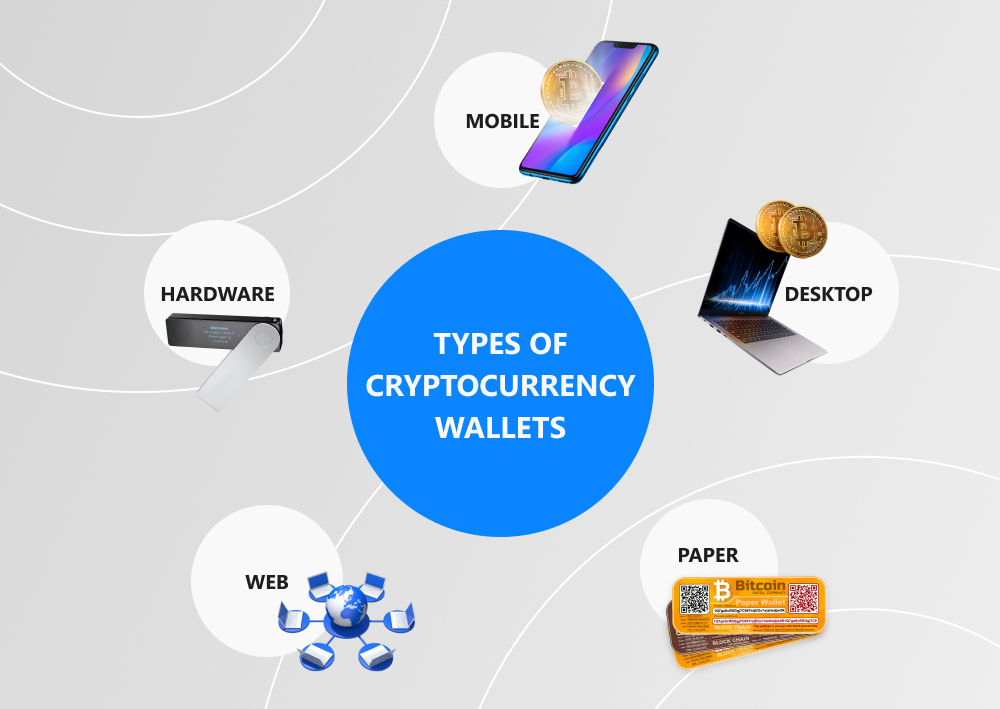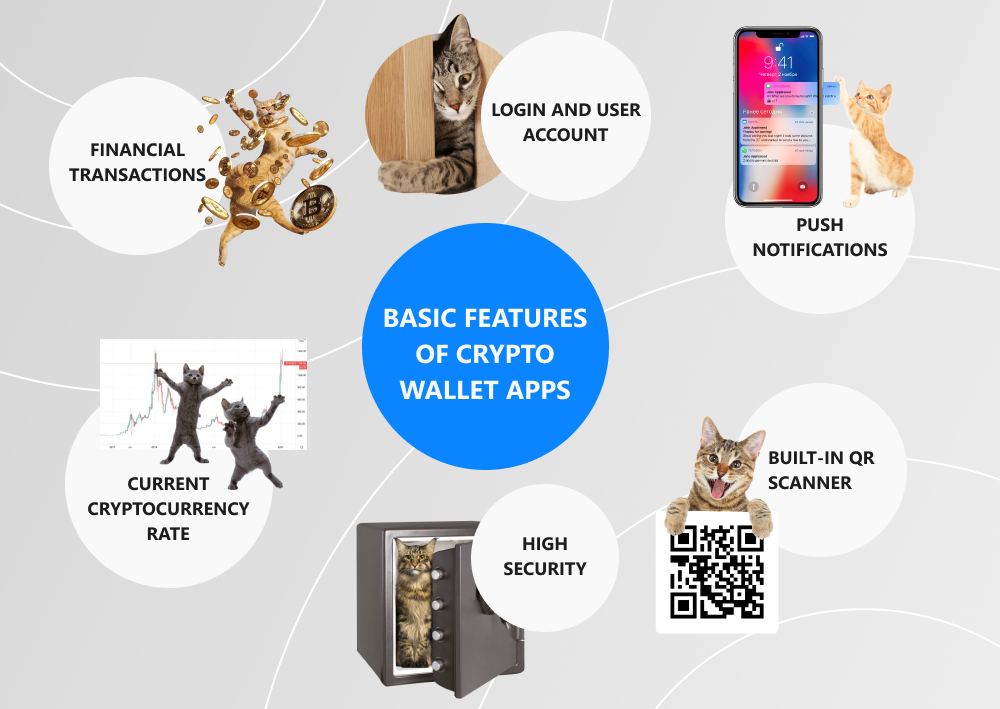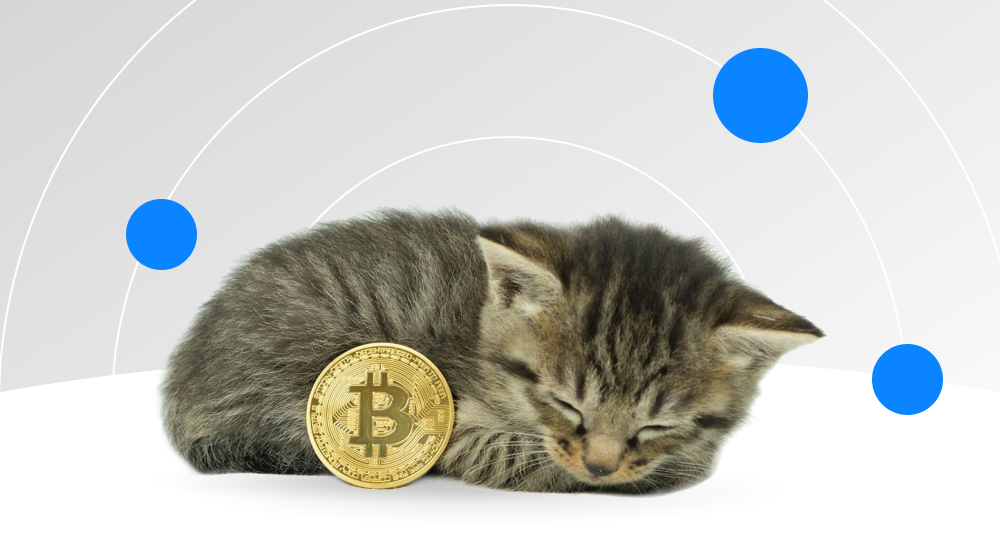If your software development company wants to offer something to crypto adopters and gain success in the market, you should know how to develop a Bitcoin wallet app. There are more than 70 million holders of Bitcoin wallets, according to Statista. People need crypto wallets to buy, sell, and exchange digital money. They can create a Bitcoin wallet on the cryptocurrency exchange, use a separate service, or install it on their mobile device, personal computer, or tablet.
Since even the largest and most secure crypto exchanges get hacked, people try to store their digital assets in cryptocurrency wallets. Therefore, you have a unique chance to develop your own Bitcoin wallet app and offer it to users. To do this, you need to decide which cryptocurrency wallet to create and what features it should have in order to achieve popularity among customers.
written by:
Andrei Kvasov
Senior Software Developer
If your software development company wants to offer something to crypto adopters and gain success in the market, you should know how to develop a Bitcoin wallet app. There are more than 70 million holders of Bitcoin wallets, according to Statista. People need crypto wallets to buy, sell, and exchange digital money. They can create a Bitcoin wallet on the cryptocurrency exchange, use a separate service, or install it on their mobile device, personal computer, or tablet. Since even the largest and most secure crypto exchanges get hacked, people try to store their digital assets in cryptocurrency wallets. Therefore, you have a unique chance to develop your own Bitcoin wallet app and offer it to users. To do this, you need to decide which cryptocurrency wallet to create and what features it should have in order to achieve popularity among customers.
Contents
Cryptocurrency Wallet App: What Is It?
A Bitcoin wallet is a program that allows holders to make cryptocurrency payments, as well as store private and public keys. These keys give users access to Bitcoins and other crypto coins. The public key is a digital string that anyone can see. It consists of a set of letters and symbols and is used when sending funds to the crypto wallet app. The private key represents a series of cryptographically generated random numbers that cannot be cracked.
As a rule, cryptocurrency wallets are divided into the following groups: desktop, mobile, hardware, and web. Let's take a closer look at each type.
Desktop Wallets
Desktop Bitcoin wallets are programs that are installed on a user's computer or laptop. When developing a desktop wallet, make sure it is compatible with various operating systems, such as Windows, macOS, and Linux. Your cryptocurrency wallet app should be simple and intuitive, have the required features, and be protected from hacker attacks. By the way, users will be responsible for the security of the private keys as they will be stored in the memory of the computer's storage device.
Who will use the desktop wallets?
Miners will be interested in such wallets because they allow them to launch nodes that make it possible to mine, as well as check and validate transactions.
Examples: Exodus, Atomic, Bitcoin Core, Armory, Jaxx Liberty, Electrum, etc.
Mobile Wallets
As the name suggests, a mobile crypto wallet is an application that is installed on a smartphone. Accordingly, users carry out all cryptocurrency transactions using their mobile phones. When developing a mobile cryptocurrency app, you need to provide an attractive and simple interface. Moreover, it should be adaptive since the wallet will be used by customers with different smartphones having various screen sizes.
Also, make sure that your mobile cryptocurrency wallet will have additional features like a QR code scanner, fingerprint identification, or face recognition. It's obvious that your wallet should be equipped with various security features, such as two-factor authentication and so on. Private keys are usually stored on the device.
Who will use the mobile cryptocurrency wallets?
According to Statista, there are 6.38 million smartphone users in the world who use their devices for various day-to-day operations. Mobile wallets will attract the interest of the majority of ordinary customers who want to spend their digital money at any time and place they want.
Examples: Bitcoin Wallet, Edge, Electrum, Infinito, GreenAddress, etc.
Hardware Wallets
A hardware wallet is a small device (such as a flashcard) that can be connected to a computer at any time to make cryptocurrency transactions. High security is one of the most important advantages of a hardware Bitcoin wallet. Firstly, the private keys are stored inside the flashcard. Secondly, you can store it in a safe or another secret place, and it will be very difficult for thieves to get to it and your assets.
Users manage these wallets with a built-in application, which complicates the hardware Bitcoin wallet development process. Get ready to work on both the app and the hardware device itself if you decide to create this type of wallet.
Who will use the hardware wallets?
It will be suitable for people who have a large number of Bitcoins and other coins since the protection of their digital assets is in the first place of their day. This is a broad group of users that includes traders, investors, businessmen, miners, and others.
Examples: Trezor Model T, Ledger Nano X, and Ledger Blue.
Web Wallets
Basically, a web wallet is a cloud service for storing Bitcoins and other digital money. Users can access it from any device, such as a smartphone, tablet, or computer. Of course, this device must be connected to the Internet. When creating a web app, developers need to pay special attention to security measures since private keys are stored on servers that hackers hunt for.
Who will use the web Bitcoin wallet app?
This is the simplest type of cryptocurrency wallet that is popular among ordinary users. People don't need to download it to their mobile phones or worry about the memory or power of their smartphone or computer. They can just enter their account and start cryptocurrency transactions.
Examples: Coinvase, BitGo, etc.
Paper Wallets
These are applications that allow users to print out a private key and passphrase to recover it on paper. This wallet cannot be connected to the Internet so hackers have no chance to hack it and steal all your money. But they also have some disadvantages since the text can fade when exposed to sunlight. Also, the paper can burn or get wet when exposed to water.
Who will use the paper wallet?
Paper wallets are suitable for users who are engaged in cold investing in Bitcoins.
Examples: encryption platforms like WalletGenerator and others.
Crypto Wallet App: Another Classification
There is another classification of cryptocurrency wallets: hot and cold, custodial and non-custodial.
Hot Wallets
A hot wallet requires a constant Internet connection. Desktop, web, and mobile wallets belong to this group. They provide users with faster access to Bitcoins and cryptocurrency transactions. They must have a high degree of protection against hackers.
Cold Wallets
A cold wallet does not have a permanent Internet connection. This group includes hardware and paper wallets, the main distinguishing feature of which is their high security against hacking.
Custodial Wallets
Custodial wallets are web-based hot wallets, typically provided by a certain crypto exchange (e.g., Binance, Coinbase). The exchange acts as a custodian that stores clients’ private keys. Newcomers prefer such wallets for their user-friendliness and simplified security measures.
Non-custodial Wallets
To keep third parties off their assets, experienced crypto users choose non-custodial/self-custody wallets. These wallets can be either hot (browser-based or software-based) or cold (hardware-based). Exodus and Trust Wallet belong to such crypto wallets.
Bitcoin Wallet Apps: Basic Features
If you want your cryptocurrency wallet app to gain popularity among users, it must meet their demands and be able to perform many functions.
Login and User Account
In contrast to usual applications, a cryptocurrency wallet development company needs to create more than a simple and convenient user account. It must be secure and capable of providing anonymity to those users who seek it. Remember that you are creating an app for cryptocurrency transactions that are still illegal in some countries. That's why let your customers log in without having to enter their email, social network profile, and so on. A user account allows people to send, receive, buy, and exchange cryptocurrencies.
Current Cryptocurrency Rate
Let the holders of your crypto wallet app always be aware of the current cryptocurrency rate when they make transactions with Bitcoins, fiat, and other coins. If it takes the cryptocurrency rate from the exchange, it will help you to provide up-to-date data. In addition, your wallet can inform users about conversion rates and give them the chance to make the best deal.
Built-in QR Scanner
QR codes greatly simplify cryptocurrency transactions since the holders do not need to waste time entering keys. Moreover, this feature saves holders from the risk of making a mistake when entering the public key address and losing their assets.
Push Notifications
This feature will allow the holders of your Bitcoin wallet app to monitor transactions and receive notifications about various promotions, news, and so on.
Financial Transactions
Users should be able to sell and buy Bitcoins and other cryptocurrencies, as well as exchange digital money with other people. Let them view balances, transaction history, save addresses of other users, and link accounts of other banks and payment services.
High Security
You must pay special attention to this feature since your application deals with money and cryptocurrencies. Hackers never stop trying to break into crypto wallets and steal holders' assets. Your wallet must have all the modern means of protection and ensure the safety of the users' money. When developing your Bitcoin wallet app, consider the following safeguards:
- Two-factor authentication. When a user wants to access the wallet, they need to pass a two-step verification. For example, they can verify their identity using a phone number, SMS, PIN, Face ID, and so on.
- Encryption. Let the user encrypt the crypto wallet app with a strong password.
- Automatic logout. This feature requires the user to enter a password every time he/she exits the application. Even if attackers find the private or public key, they will not be able to use the wallet.
- Backup. This feature will allow the holder to quickly recover all data in case of theft or loss of the wallet. Backups can be made to the cloud, computer (in the case of a mobile wallet), and so on.
- Separate keys for every transaction. Users can use this feature if they want to better protect their application.
Crypto Wallet Apps: Additional Features
If you want users to like your crypto wallet, consider creating additional features. Many companies want to enter this promising market and develop their own applications and services. Your product should stand out from the crowd. For example, you can offer your potential customers the following options:
Integration with Retailers and Banks
More and more retailers are starting to accept digital currencies. You can give users a unique opportunity to make Bitcoin payments through your cryptocurrency wallet. Cooperate with payment gateways to connect your solution to banks so that holders can make transactions through their usual banks.
Lightning Transactions
Users will appreciate this feature thanks to the Lightning Network that significantly accelerates and cheapens Bitcoin transactions at the expense of low commissions.
Hardware Authentication
In this case, the key is required to get access to personal data. The key is also known as a hardware token, cryptographic key, or USB key. For authorization, the user needs to insert the key into the USB located on the mobile phone or computer. This will make it easier for users to log in and provide additional security for their assets.
Technologies Used for Bitcoin Wallet App Development
The next important issue that Bitcoin wallet app developers should be concerned about is the technology stack. For example, you can make use of existing Bitcoin libraries. The most popular tools are Coinbase SDK, Bitcoinj, and Blockchain.
Coinbase SDK is a cross-platform Java library that supports Python, Java, and other programming languages. It is suitable for developing a Bitcoin wallet app for Android and iPhone devices. Bitcoinj is built on Java but can work with JVM, MainNet, and TestNet3 languages. It supports Windows and Android platforms. Blockchain also runs on Android/Windows/iOS platforms and supports a wide range of programming languages.
If you don't want to use third-party libraries, you can hire a crypto wallet development team to build your app from scratch. It will be a longer and more expensive process, but you will get a unique application that will fully meet your requirements. To do this, you will need to synchronize the blockchain through the installation of an API, create a wallet, obtain permissions for inbound and outbound transactions, and configure programs to manage transactions.
Want to create your own Bitcoin wallet but lack the skills and knowledge? You can contact Qulix specialists. We will help you choose the most appropriate technology stack and the necessary tools. For more details, please visit our website or get in touch with our support team.

Contacts
Feel free to get in touch with us! Use this contact form for an ASAP response.
Call us at +44 151 528 8015
E-mail us at request@qulix.com








